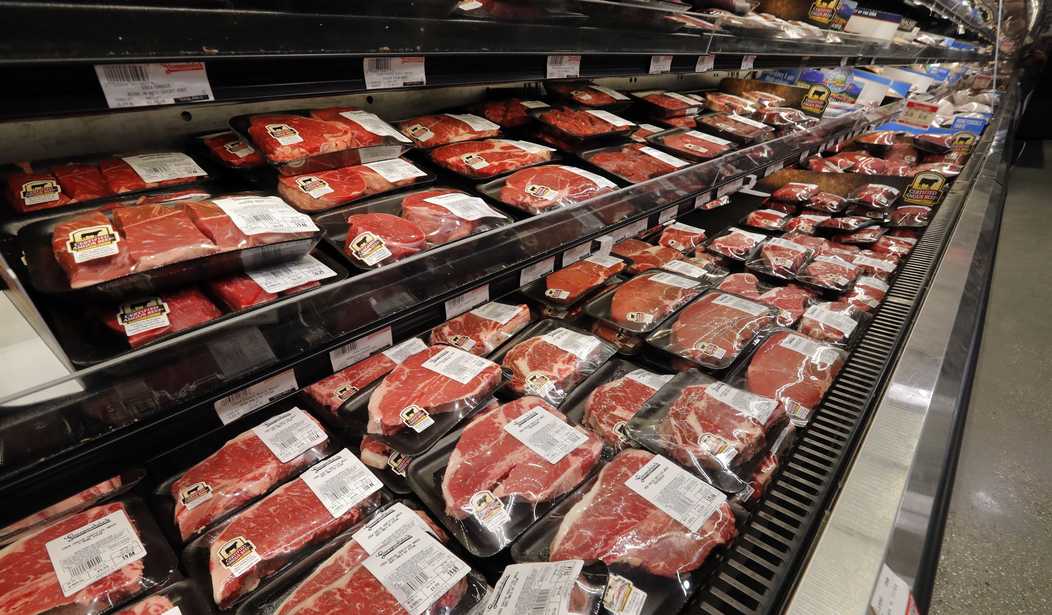Joe Biden has stopped using the word "Bidenomics" in his speeches despite the fact that the White House continues to insist that the president's plan is working.
Yes, it was getting pretty ridiculous. The use of the word showed the disconnect from reality being experienced by Biden and the White House as Americans find themselves in far worse shape financially than before the pandemic.
Bloomberg recently studied how the cost of living has changed over the last 2.5 years and how much worse off most Americans have become.
It now requires $119.27 to buy the same goods and services a family could afford with $100 before the pandemic. Since early 2020, prices have risen about as much as they had in the full 10 years preceding the health emergency.
It’s hard to find an area of a household budget that’s been spared: Groceries are up 25% since January 2020. Same with electricity. Used-car prices have climbed 35%, auto insurance 33% and rents roughly 20%
Another study, prepared by the Republican members of the U.S. Senate Joint Economic Committee, puts the catastrophe in even starker terms. Despite wages increasing on average 13.6% since the pandemic began, families must earn an additional $11,400 just to keep pace with the cost of food, transportation, housing, and energy, Those four expenditures account for 80% of the increase in cost of living for most Americans.
"Middle- and low-income Americans aren't doing well enough — they are living fragilely on the edge," said Gene Ludwig, chairman of the Ludwig Institute for Shared Economic Prosperity.
Indeed, Joe Biden needs to talk to the middle class to find out why Bidenomics is so unpopular. He won't hear much about supply chains or greedy corporations. He'll be asked why, after spending $4.5 trillion, we're less well off today than we were before the pandemic.
He may also be asked about the geographical discrepancies in how inflation is hitting consumers.
Around the U.S., the state with the highest additional expenditures to afford the same standard of living compared with 2021 is Colorado, where a household must spend an extra $15,000 per year, the JEC analysis found. Residents in Arkansas, meanwhile, have to spend the least to maintain their standard of living, at about $8,500 on an annual basis.
The differences in costs are tied to local economic differences. For instance, typical housing in Colorado requires an additional $267 per month compared with January 2021, while other states saw much smaller increases, the analysis found.
At the end of the 1980 election, Jimmy Carter and Ronald Reagan were neck-and-neck going into the final few weeks. Then came the presidential debate. Carter had spent an enormous amount of money trying to depict Reagan as some kind of wild man who would blow up the world. What the American people saw was an avuncular, almost apologetic candidate pointing out Carter's lies and exaggerations.
It was the closing statements from both candidates that decided the winner. Carter's closing remarks began with a story about how he asked his young daughter Amy what the most important issue was facing the country. She responded, "nuclear war."
Then, it was Reagan's turn.
Next Tuesday is election day. Next Tuesday all of you will go to the polls; you'll stand there in the polling place and make a decision. I think when you make that decision, it might be well if you would ask yourself, are you better off than you were four years ago? Is it easier for you to go and buy things in the stores than it was four years ago? Is there more or less unemployment in the country than there was four years ago? Is America as respected throughout the world as it was? Do you feel that our security is as safe, that we're as strong as we were four years ago?
That summary of Carter's four years as president was all it took to give Ronald Reagan a landslide win and the presidency. The GOP nominee debating Biden or whichever Democrat emerges as the candidate would do well to take Reagan's devastating summary to heart.










Join the conversation as a VIP Member